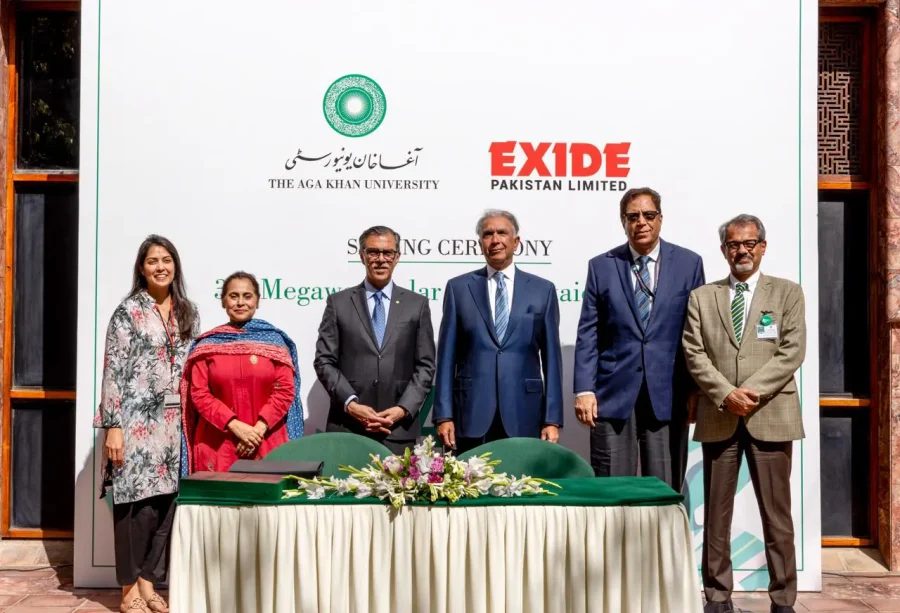Aga Khan University (AKU) has embarked on its largest solar photovoltaic (PV) project to date as part of AKDN’s commitment to achieving net zero emissions by 2030. In collaboration with Exide Pakistan, AKU is installing 3.3 megawatts of solar PV across its Stadium Road Campus in Karachi, Pakistan, marking a significant milestone in its decarbonization journey.
The project aims to leverage Pakistan’s abundant solar irradiation to generate clean energy and reduce greenhouse gas emissions. By installing solar panels on campus roofs and parking areas, AKU seeks to provide shade to parked vehicles while harnessing solar energy for electricity generation. The phased installation process is expected to be completed by April 2025. AKU President, Dr. Sulaiman Shahabuddin, emphasized the institution’s commitment to environmental sustainability and climate action through renewable energy initiatives.
This project aligns with AKU’s goal of achieving net zero emissions by 2030, employing renewable energy and energy efficiency measures to reduce its carbon footprint. Altaf Hashwani, Director of Exide Pakistan Limited, praised the partnership between AKU and Exide for promoting renewable energy adoption.
He highlighted the project’s potential to inspire other institutions to embrace sustainable practices and combat climate change. The solar PV installation not only reduces reliance on conventional energy sources but also contributes to local air quality improvement and cost savings. By annually saving 1900 tonnes of CO2e emissions, AKU’s initiative underscores its commitment to environmental stewardship and positions it as a leader in sustainable healthcare practices.










